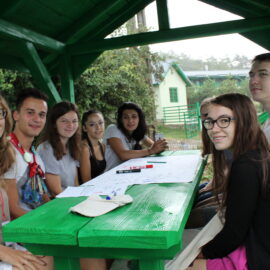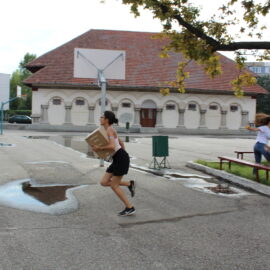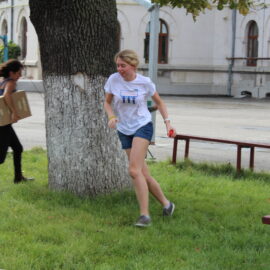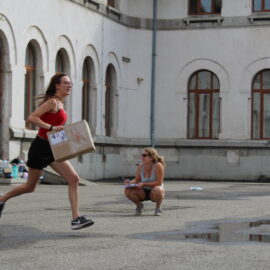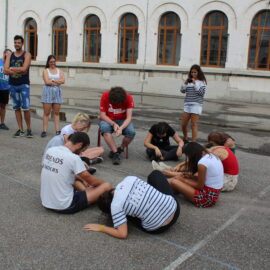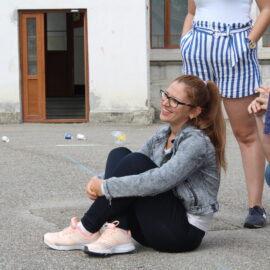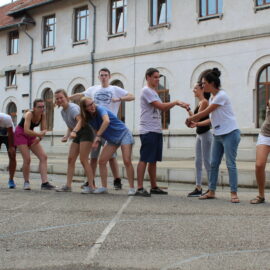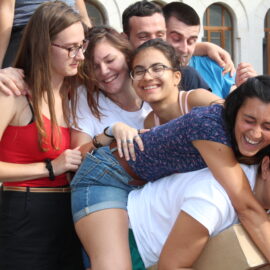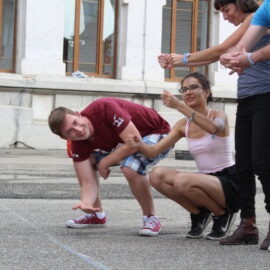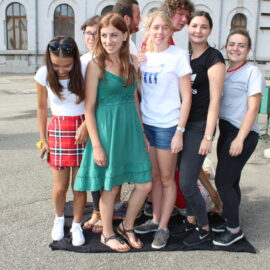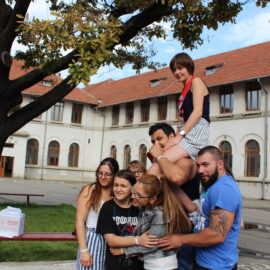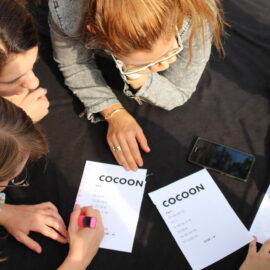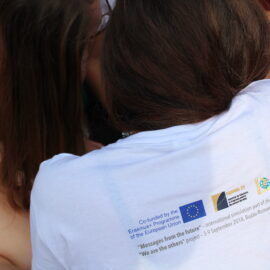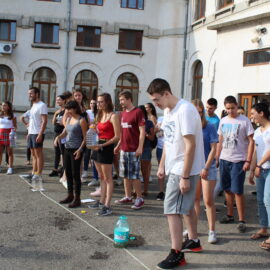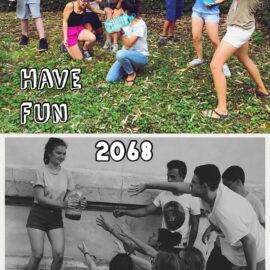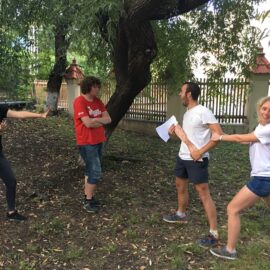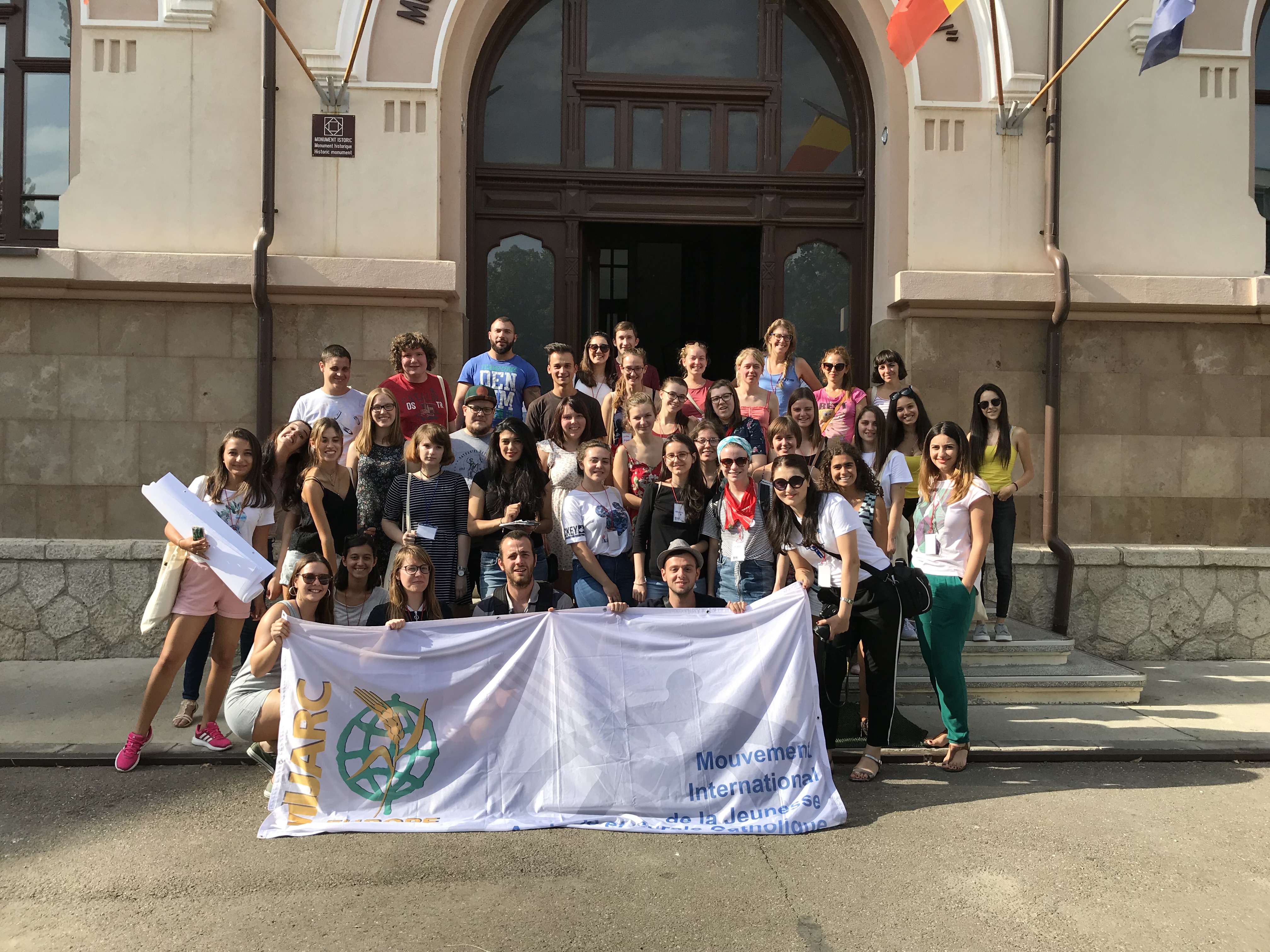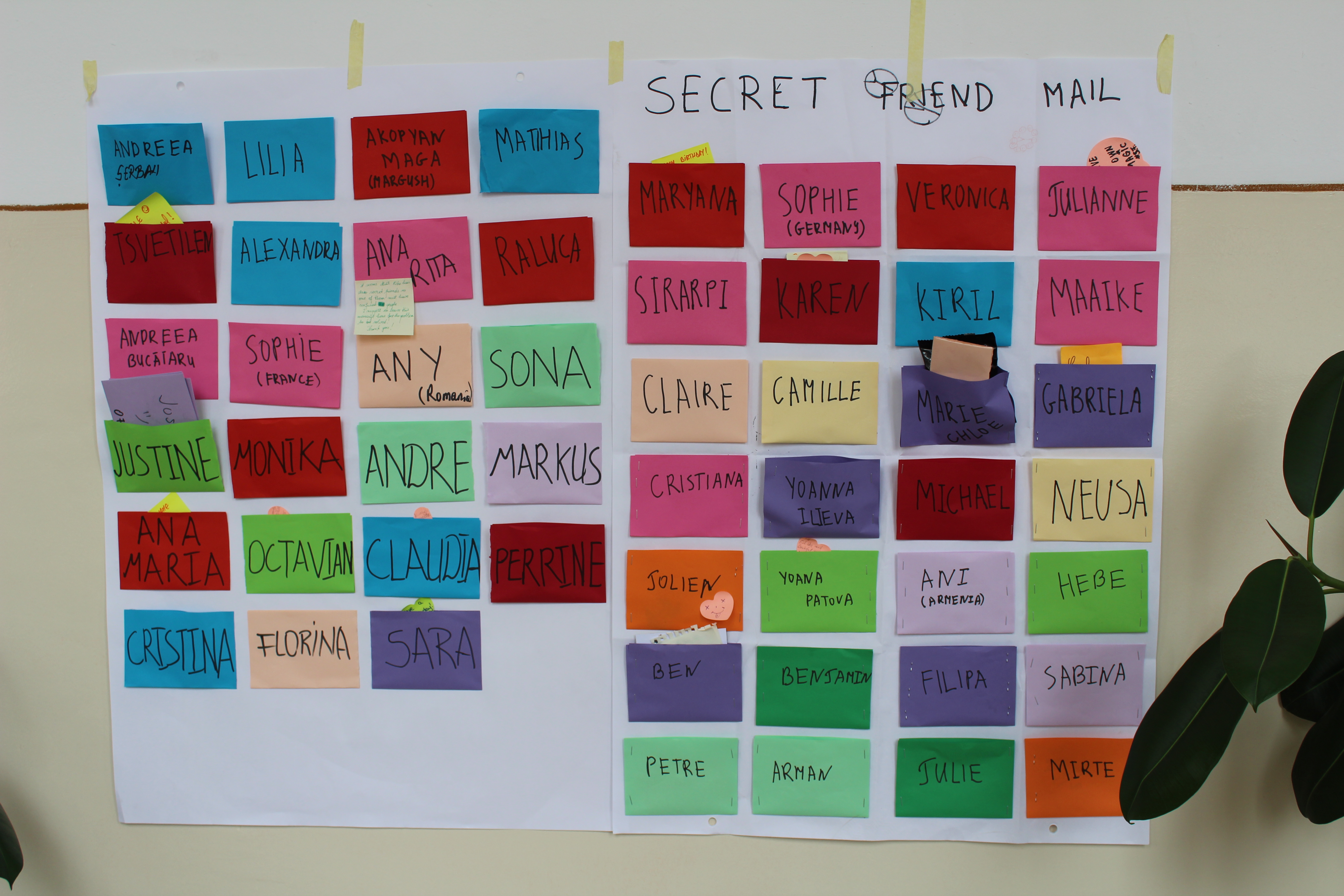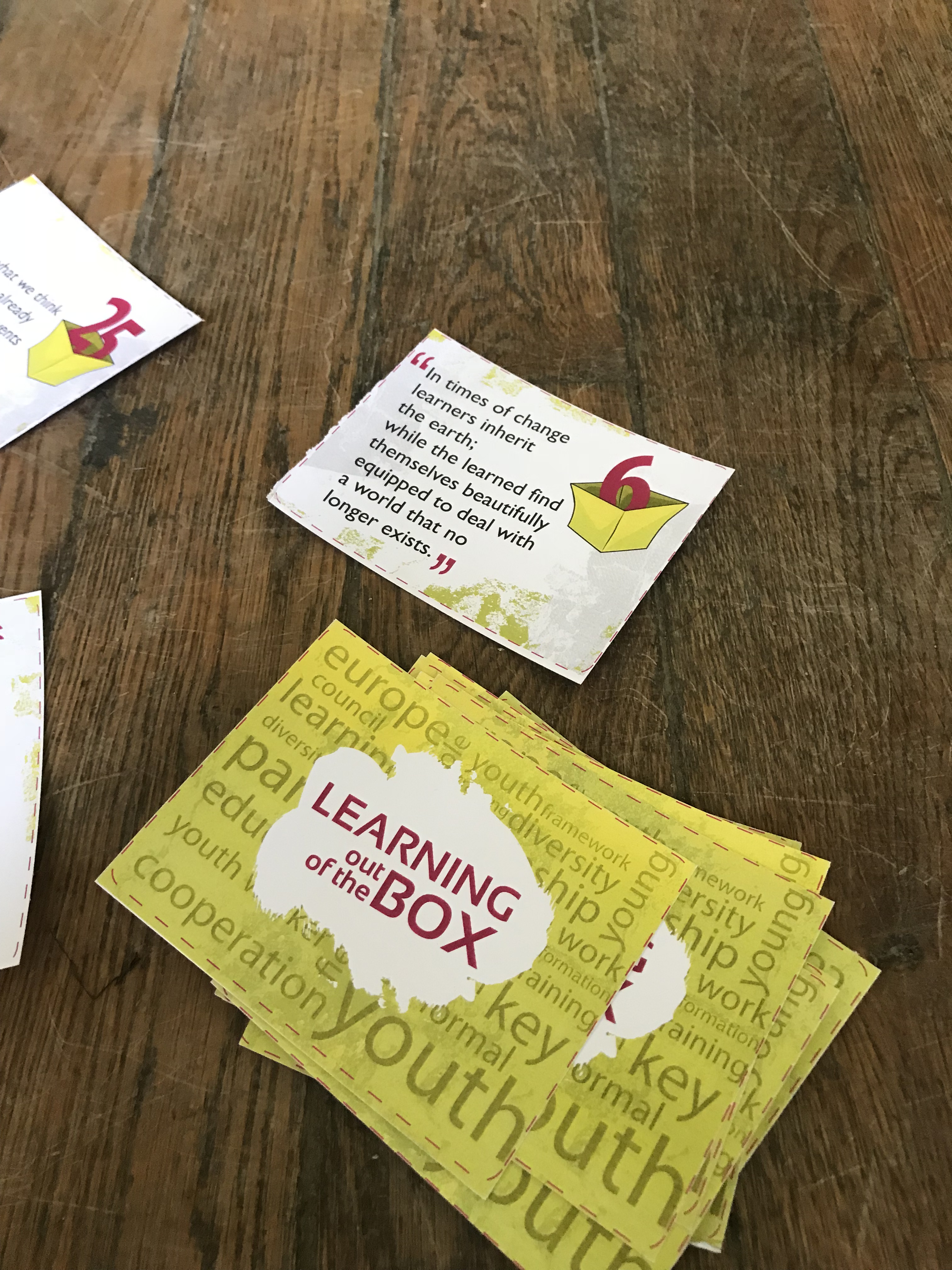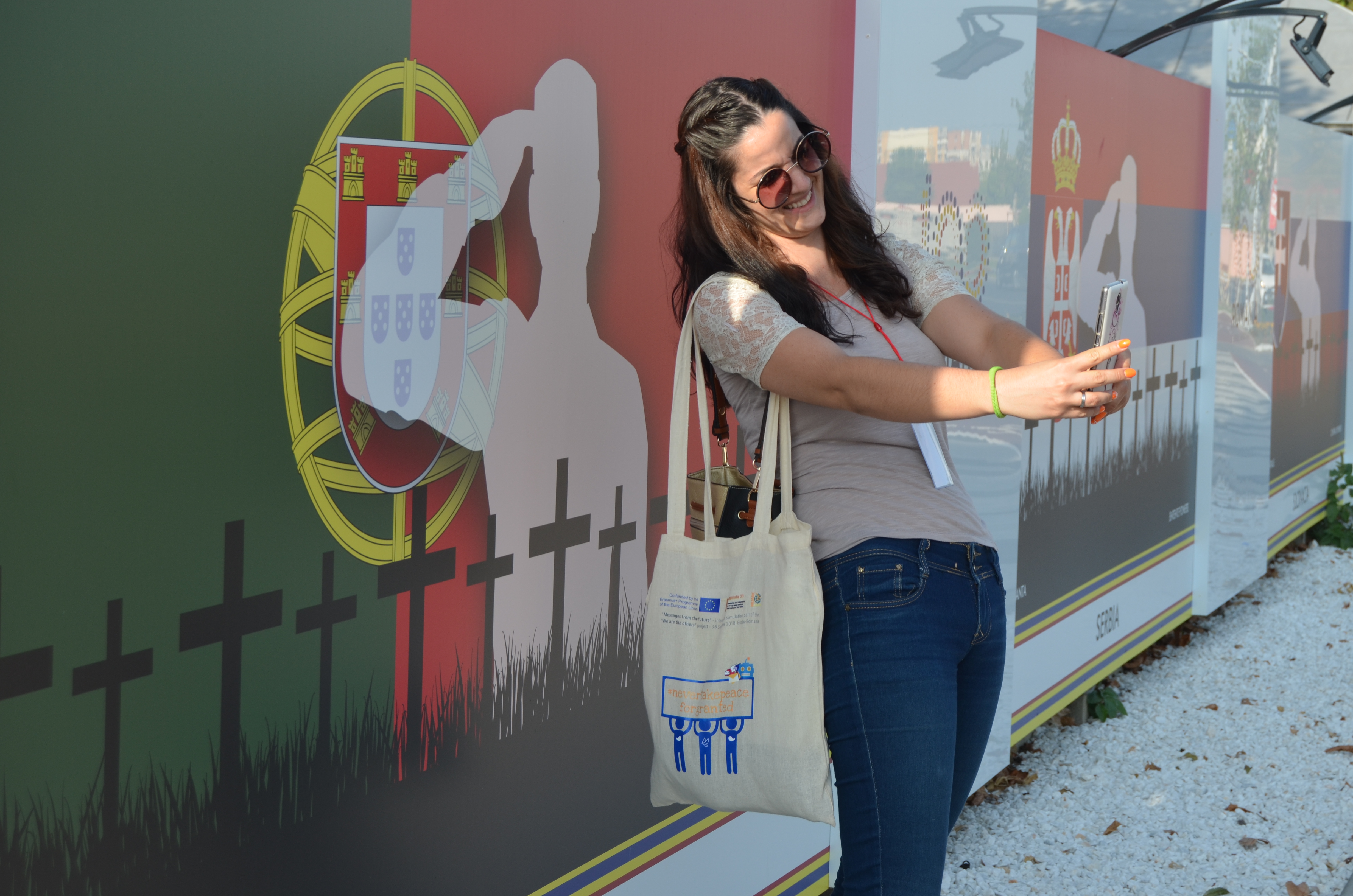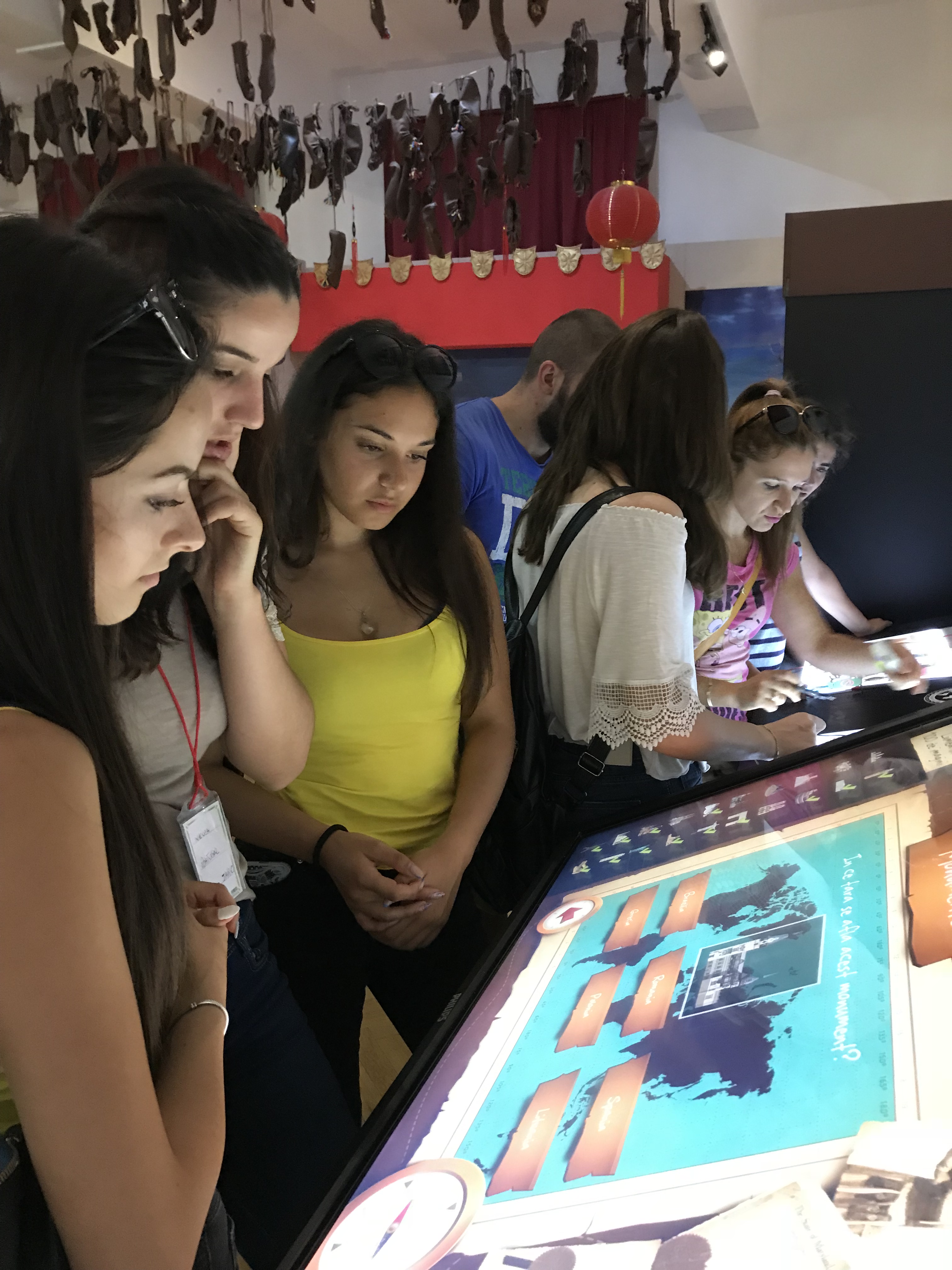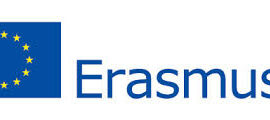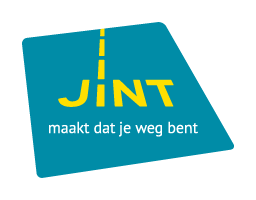The third and final activity included in our work plan on 2020, the international summer camp ”Cultivating youth participation” was carried out in a hybrid format, in February 2021, with participants meeting in national groups or connecting exclusively online. In spite of almost one year of continuous uncertainty, endless online meetings and fluctuating periods of hope and fear, the winter camp was a vibrant activity that brought a concrete and significant finality to the activities planned for 2021.
The hybrid winter camp „Cultivating youth participation” was the third activity included in the our work plan „Rock, paper, participation” which is co-funded by the European Youth Foundation of the Council of Europe, Renovabis and the European Commission.

The winter camp was organised between 20-23 February 2021, after going through a significant risk of not being organised at all. Luckily the new Board members of MIJARC Europe decided to take the risk of postponing the activity for 2021 and made efforts to encourage our member movements to organise residential national groups or select participants to connect online. Our movements from Armenia, Bulgaria, Georgia and Romania organised in person events, while the participanta in Belgium, Germany and Malta connected online. A group of 61 registered participants, representing 7 European countries joined the activity. 43 of them attended the winter camp for its entire duration.
The general aim was to increase participants’ knowledge on how to design, plan and manage participatory projects aimed at increasing the level of participation of their peers in decision-making and in policy development about sustainable agriculture at local level. The main tool was the participatory project methodlogy (PPM) proposed in the “Have your say” Manual. The PPM provided the backbone for designing real, concrete projects addresing at least one of the issues related to youth involvement in agriculture that had previously been identified during the local visits.
Almost 90% of the participants declared in the formal evaluation forms their satisfaction and increased motivation to ecourage the participation of their peers in decision-making and in policy development about sustainable agriculture at the local level. More than 80% of the participants felt that the activity had achieved all three of its major objectives, namely:
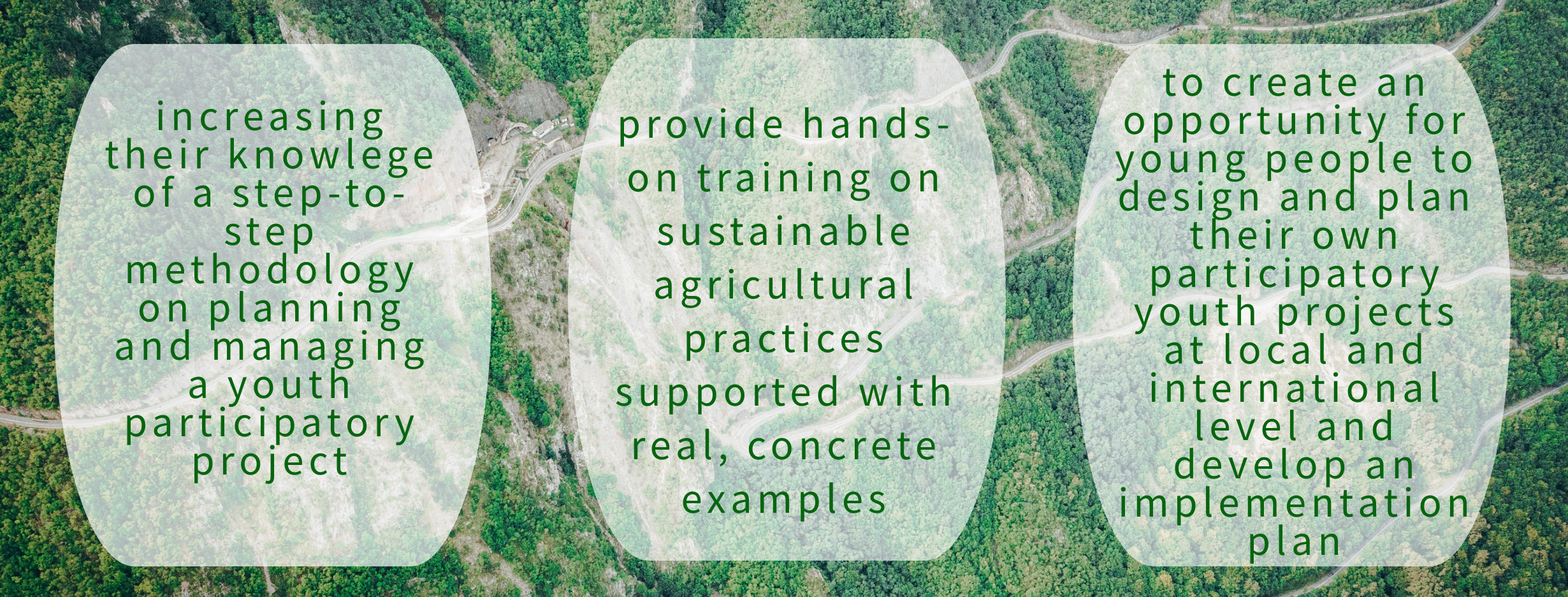
81% of the participants shared that they have participated and felt included during the activities. One of the factors that made this possible was the local facilitators’ presence and contribution. Another factor was the work in small groups in a virtual environment and instant feedback given by the team of educators and facilitators.
DAY 1
The first day of the activity started with a session in which the participants had the opportunity to get to know each other and the educational team, as well. The second session of the first day aimed to introduce the work done by MIJARC Europe and its member organisations until the moment and give an overview of the previous activities on the local level. The third session was an introductory session for the topics of Youth participation and the Revised European Charter On The Participation Of Young People In Local And Regional Life. As there were participants with different experience and background on youth work and youth empowerment, the session also aimed to ensure that all of the participants are on the same page and have the same understanding of the key concepts of participation and youth work. The participants were introduced to a couple of definitions of youth participation given in the Charter. After discussing and creating the « working definition », the participants were divided into two small groups and introduced to the six-step-model of using the Charter and the RMSOS approach, also provided in the “Have your say!” manual of the CoE. The fourth session was dedicated to the Participatory Project Methodology. Besides the questions of the participants, additional value to the session came from the first-hand experience and examples shared by the local facilitators and the educational team.

DAY 2
The first session of the second day introduced the Participatory Project Methodology (PPM) framework in details. The session was build based on the information shared on the “Have your say!” manual and T-Kit 3: Project Management of the CoE. The second session was dedicated to sustainable agriculture and youth empowerment, with Janna Herzig, a young expert, presenting two projects: La Bolina (Spain) and Solawi Köln (Germany). By presenting the projects, the expert emphasised the vital role of youth participation in the management and the CSA model as a positive alternative, too. The following two sessions were dedicated to the work of the national groups on creating project proposals and implementing the aspects of the PPM framework.
DAY 3
The third day started with deeper elaborating on the topic of youth participation in the context of sustainable agriculture. The participants had the possibility to learn more about MIJARC Europe’s best practices, policies developed during the years and fruitful partnerships. Next, the participants used the Kent Mcdonald’s Stakeholder Map graphic method, modified according to the project’s specifics and the session. The session helped the teams get a clear idea of their strengths and weaknesses in implementing future participatory projects and their interactions with different stakeholders. The third and fourth sessions were dedicated to sharing expertise and creating project proposals in national group work with the support of an external expert from KLJB Germany. At the end of the third day was the International evening of MIJARC Europe. The virtual cultural event was facilitated in an interactive and fun way by the facilitators. The national groups had to present 10 unknown fun facts about their countries and play their favourite song. At the end of every presentation, there was a time for questions and answers, so the participants could understand more about each country’s culture and traditions.
”It was a nice project! The hybrid method is really challenging and it’s not easy organizing such activity so all of your efforts are very appreciated 🙂 You did a really nice job after all and I’m looking forward to the next projects!!! Love you guys”
participant to the Winter Camp
DAY 4
The winter camp’s last day started with presenting the national groups’ projects proposals. Each group presented their proposals and received feedback with some ideas for implementation. Most of the groups had successfully applied the PPM framework and addressed the issues related to sustainable agriculture that could be beneficial for their societies. The following session was dedicated to a presentation on applying for grant opportunities and finance their project proposals. That session helped the participants increase their knowledge of the actual funding opportunities they can use to finance their project ideas, better understand fundraising at the European level, and be more confident in finding the resources for implementing their projects. The Winter camp ended with an evaluation and planning future steps session. The planning activity aimed to encourage the participants to foresee some possible deadlines, make a calendar with activities, and be more engaged with the two main topics of the Winter camp – Participatory Project Management and Sustainable agriculture.
The main outputs of the hybrid seminar are seven project proposals tackling the problems identified during the local visits and discussed during the Winter camp, including the examples of the experts. All the participants created action plans that are expected to be shared with their boards or executive bodies of the organisations. The resource pack with all the training materials, CoE manuals and detailed information for the EYF, the presentations and the materials as websites of the organisations and their projects, useful links to different institutions and contacts shared by the experts were sent to the participants after the activity. The participants also shared information and media content about the activity on different social platforms.
Main learning outcomes:
- 100% of the participants indicated they knew the participatory project methodology to a good or to a great extent
- more than 90% felt they knew how to design a youth participatory project increased knowledge on sustainable agriculture and funding available for youth projects
I think everything was useful for all of us. I am sure that such programs will continue, at least locally. I was most interested in the involvement of young people in youth work, but the other topics were also very useful. Thanks for everything.
participant to the winter camp
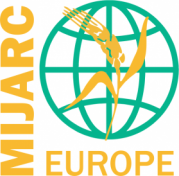
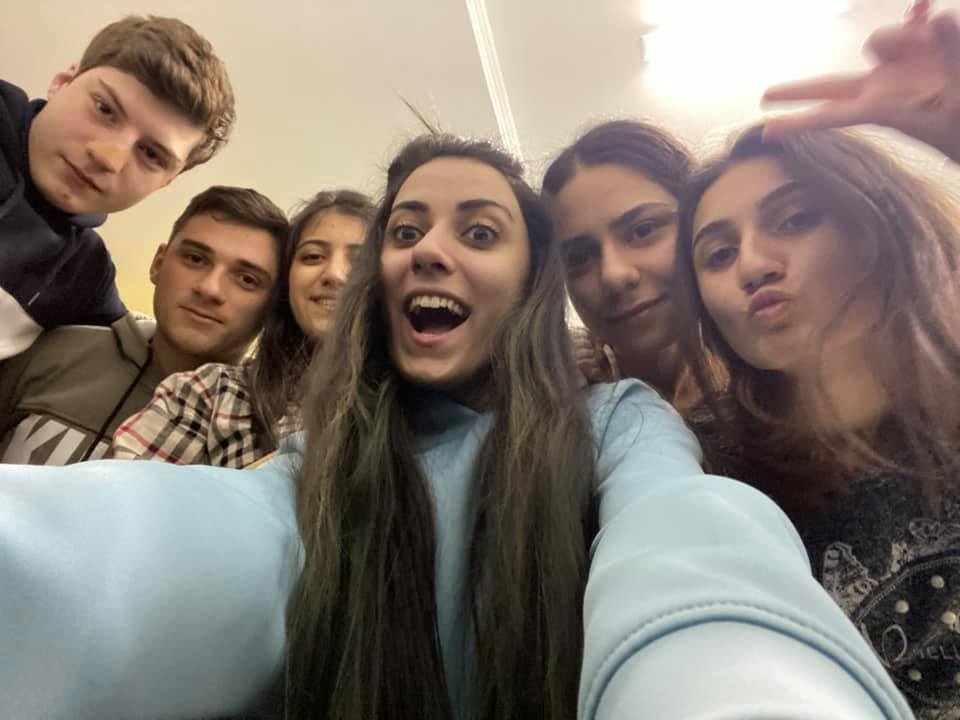
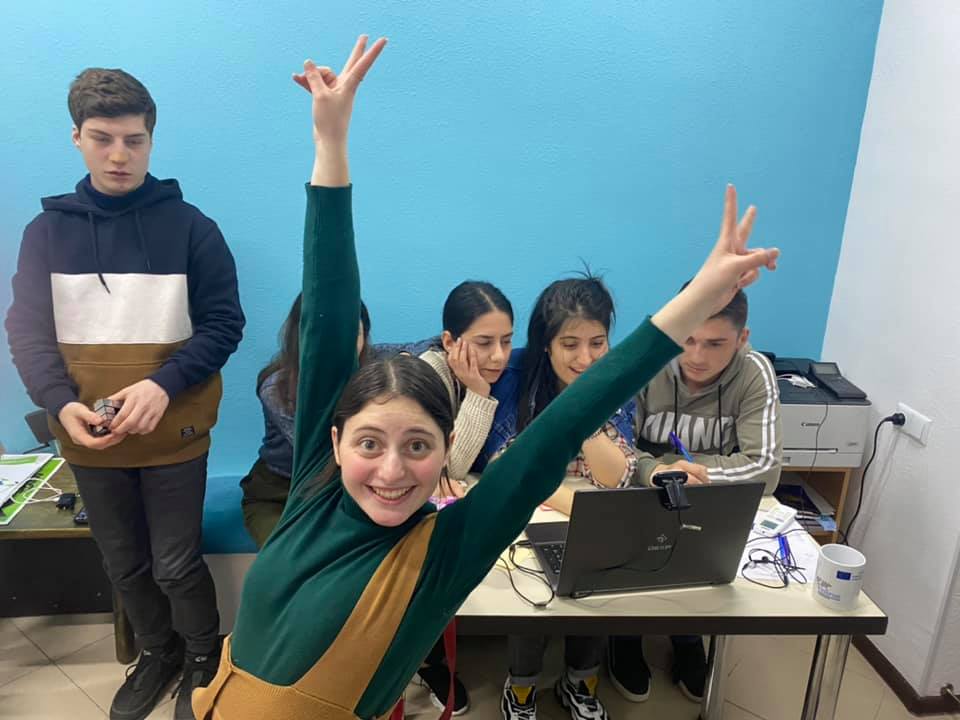
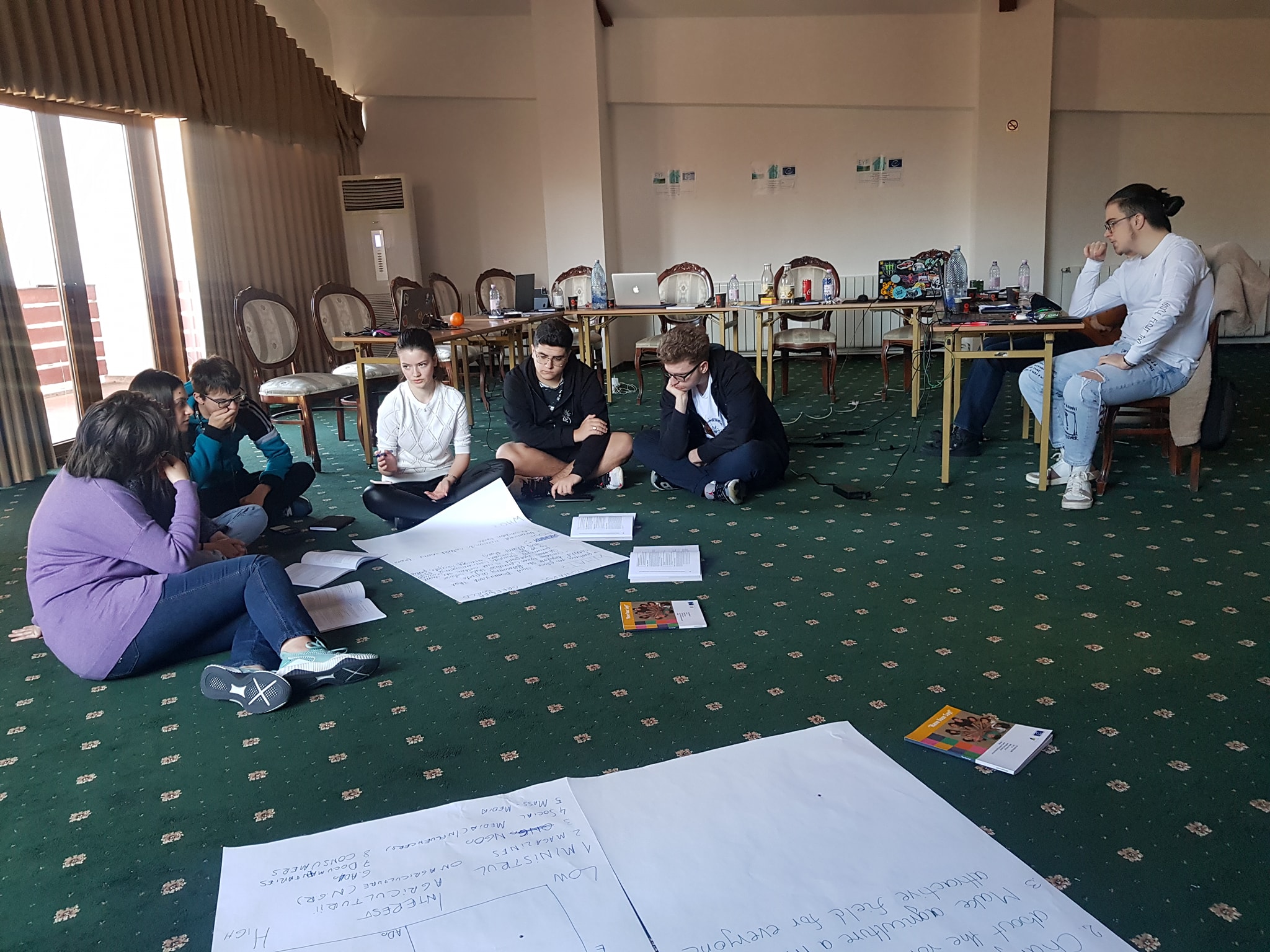
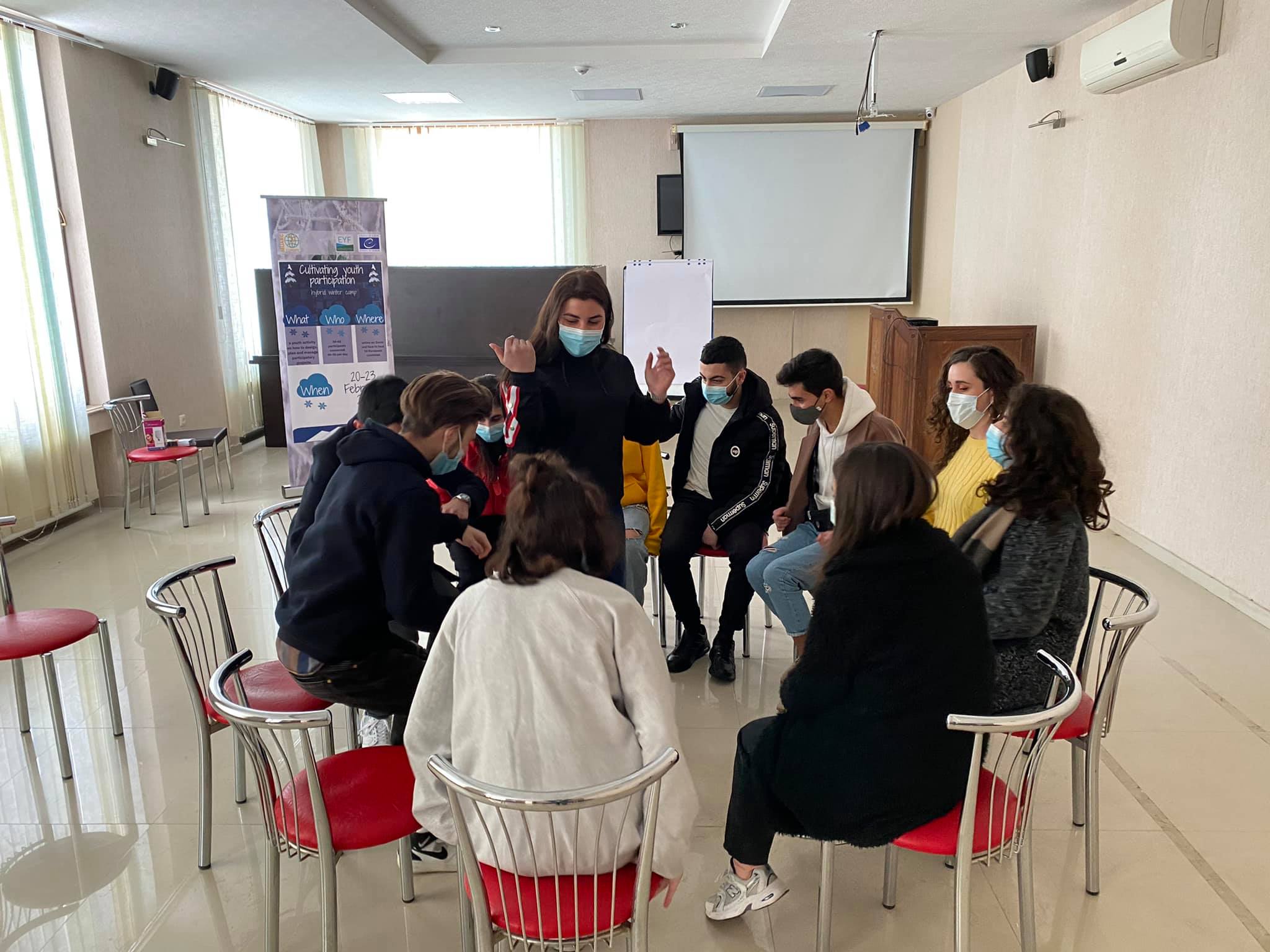
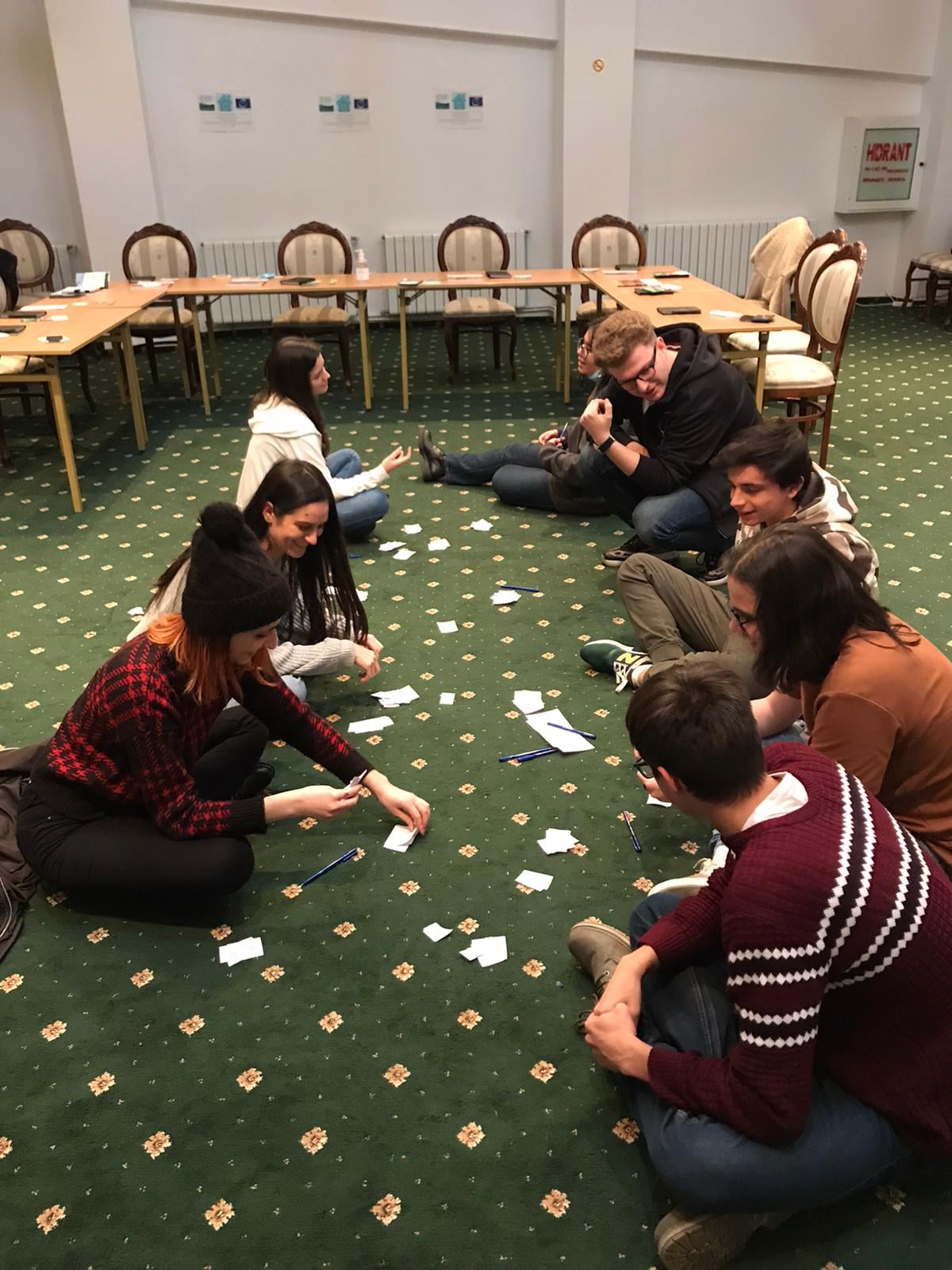
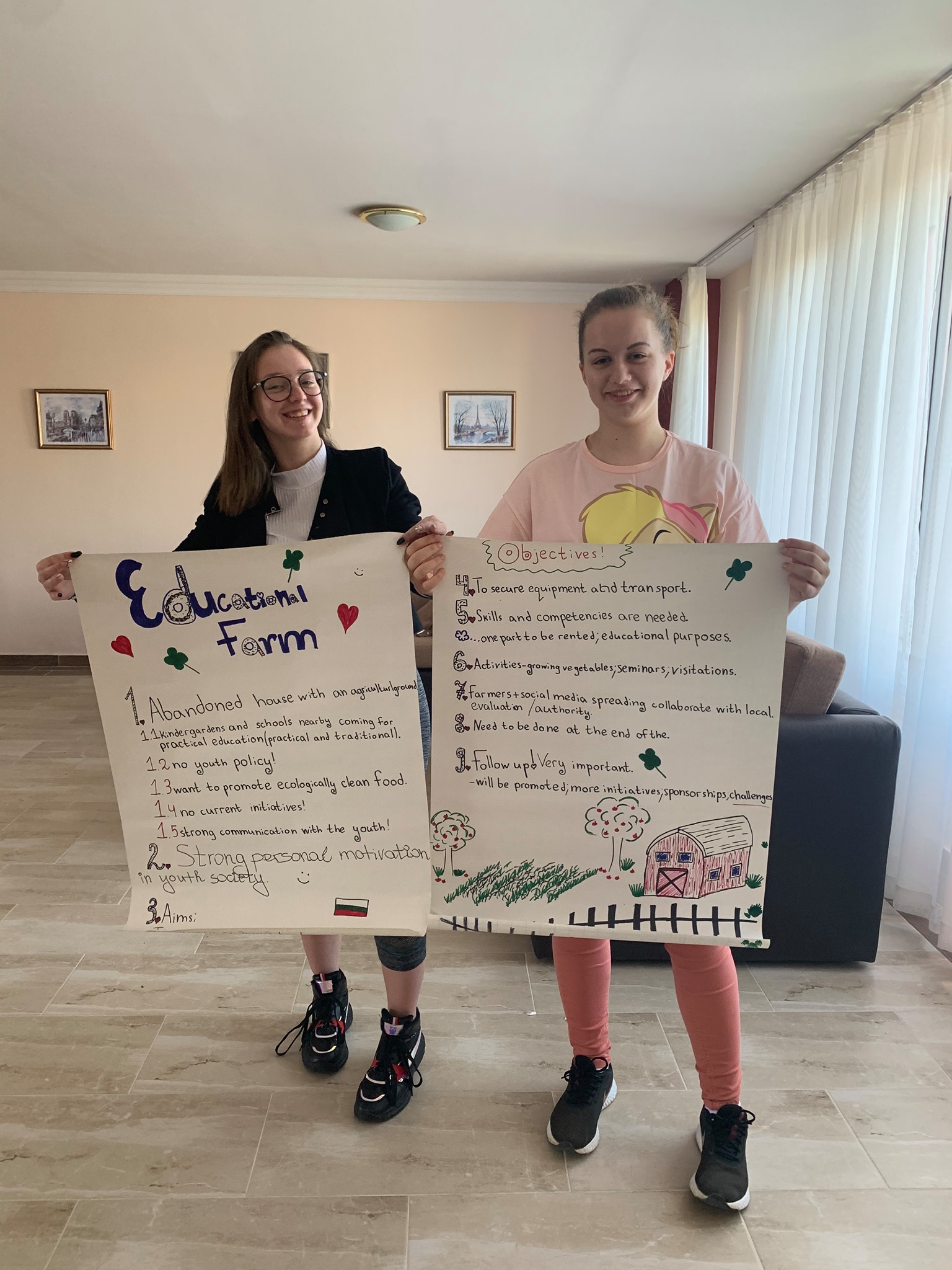
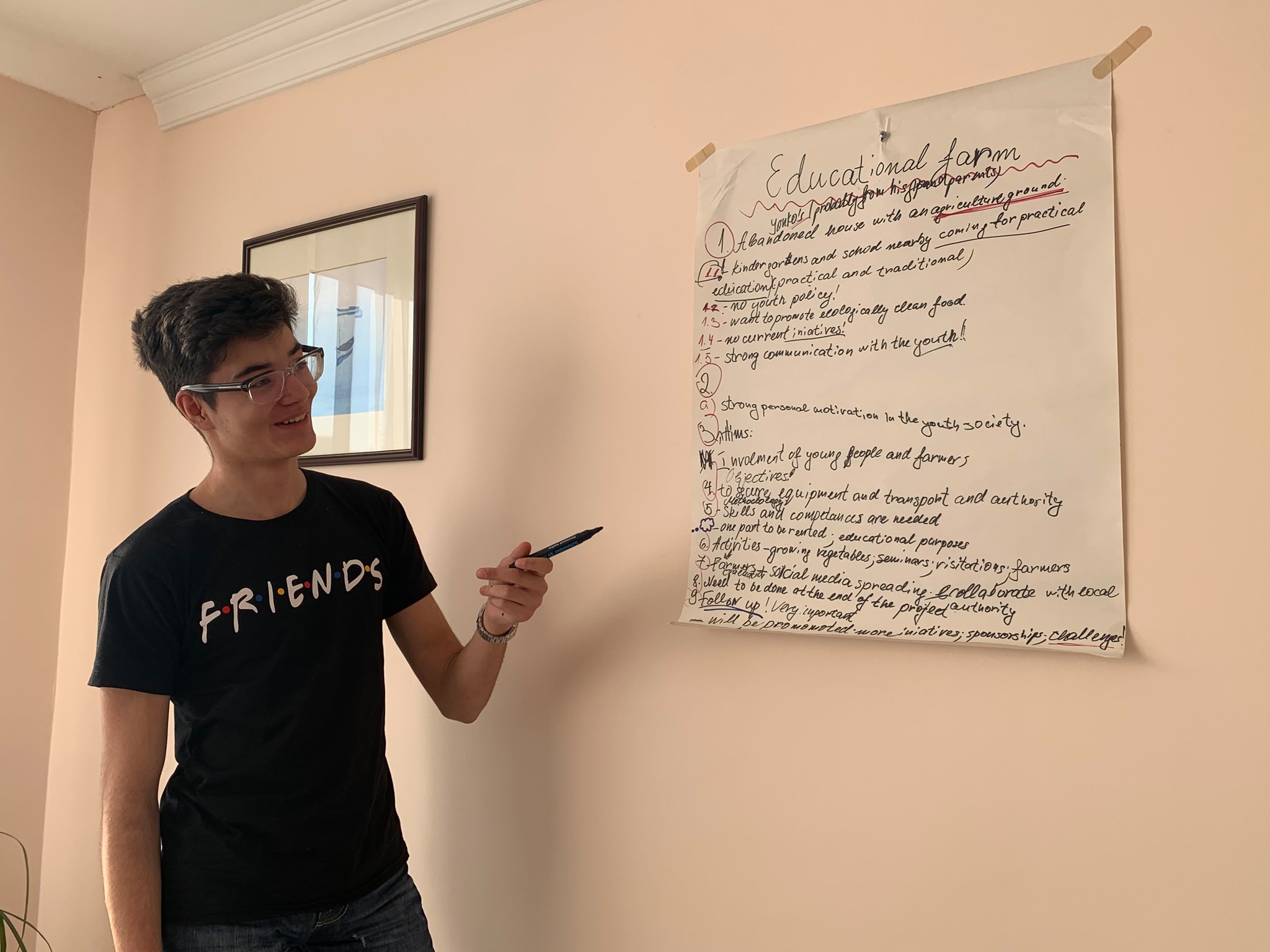
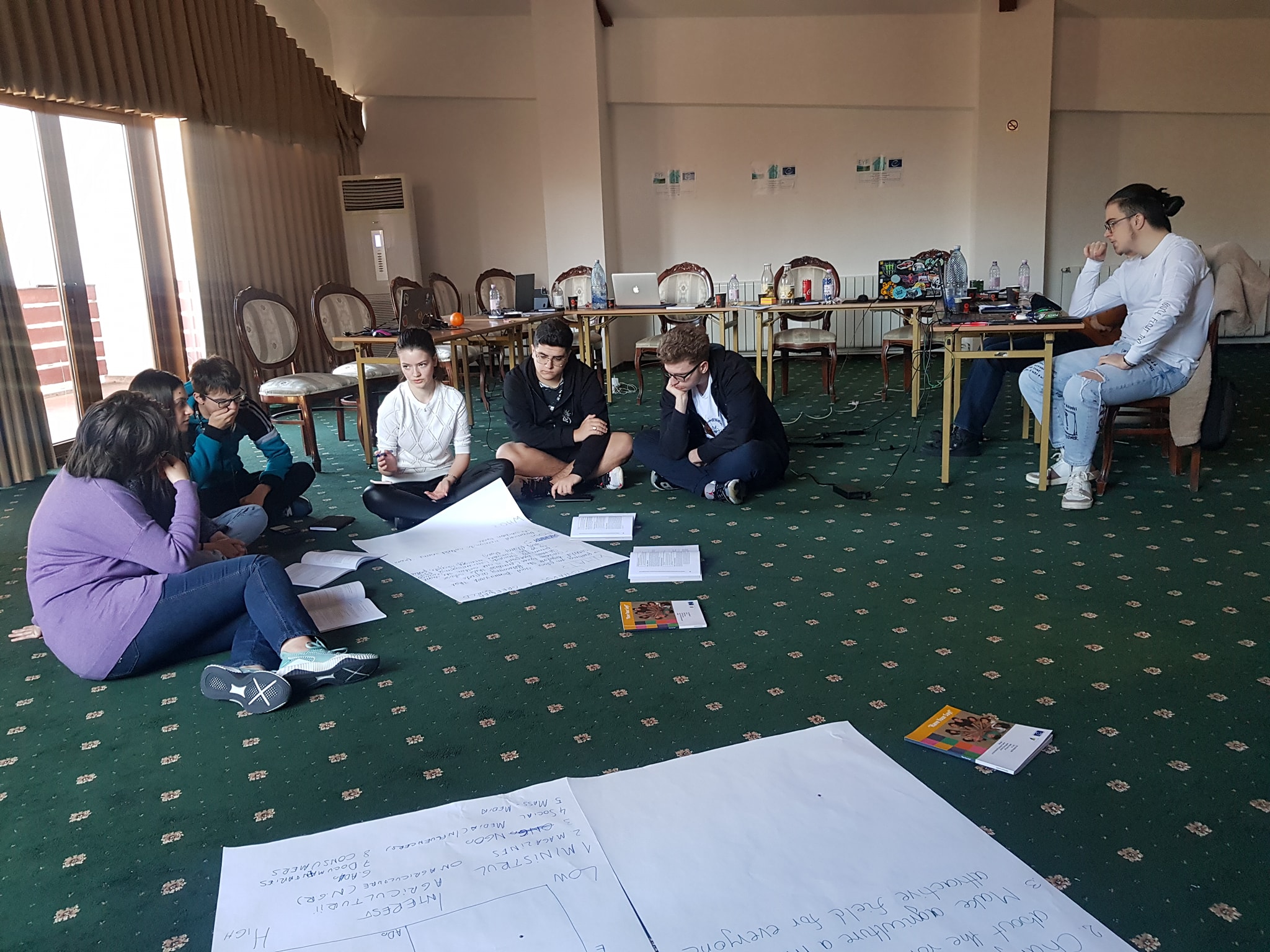
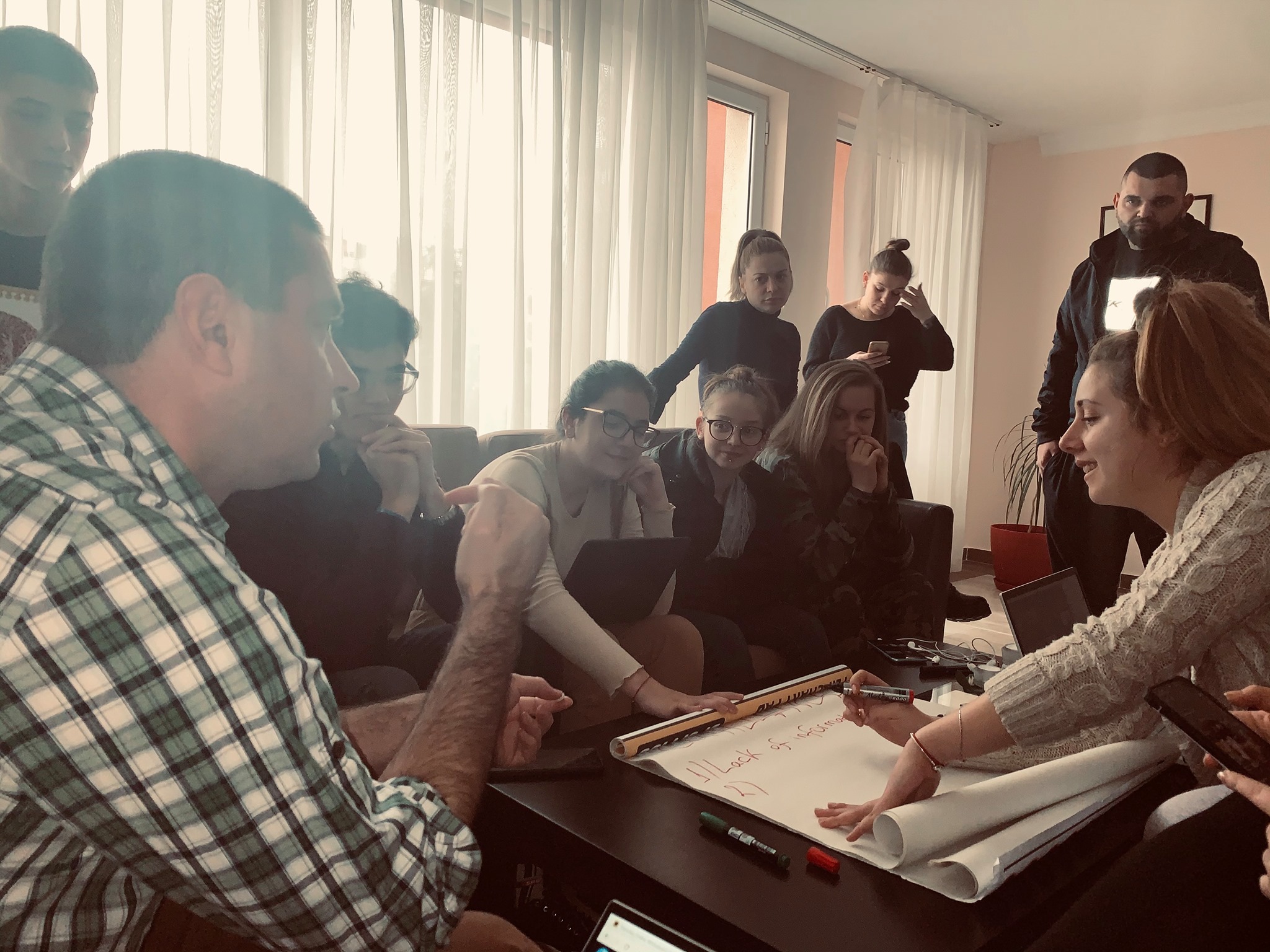
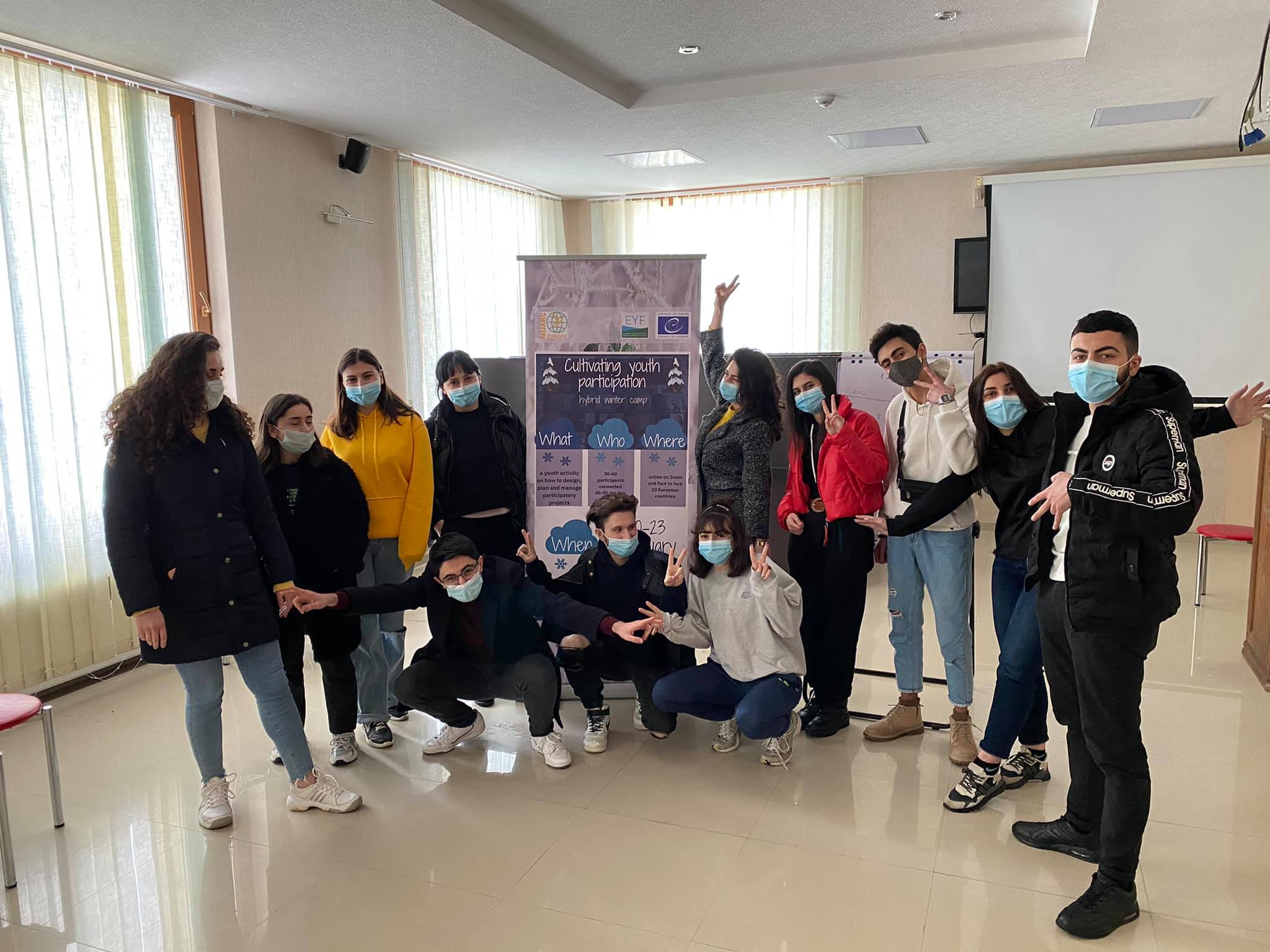
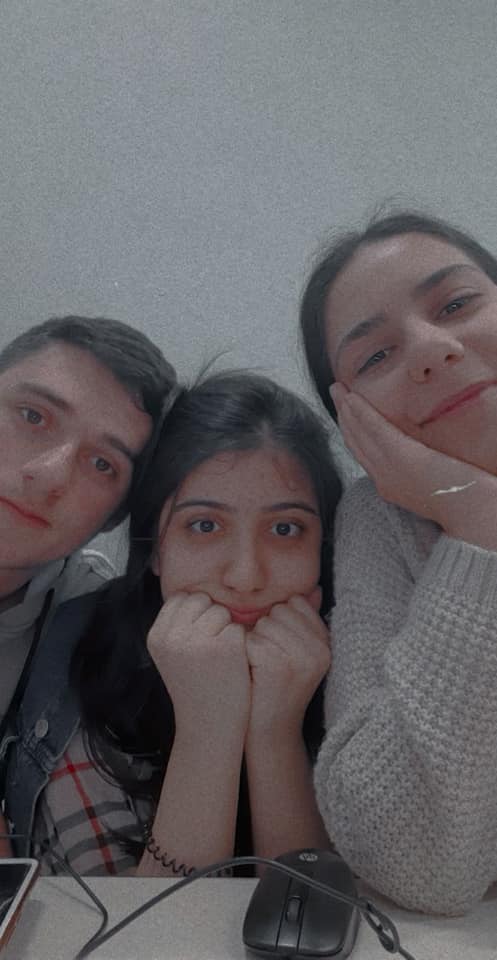
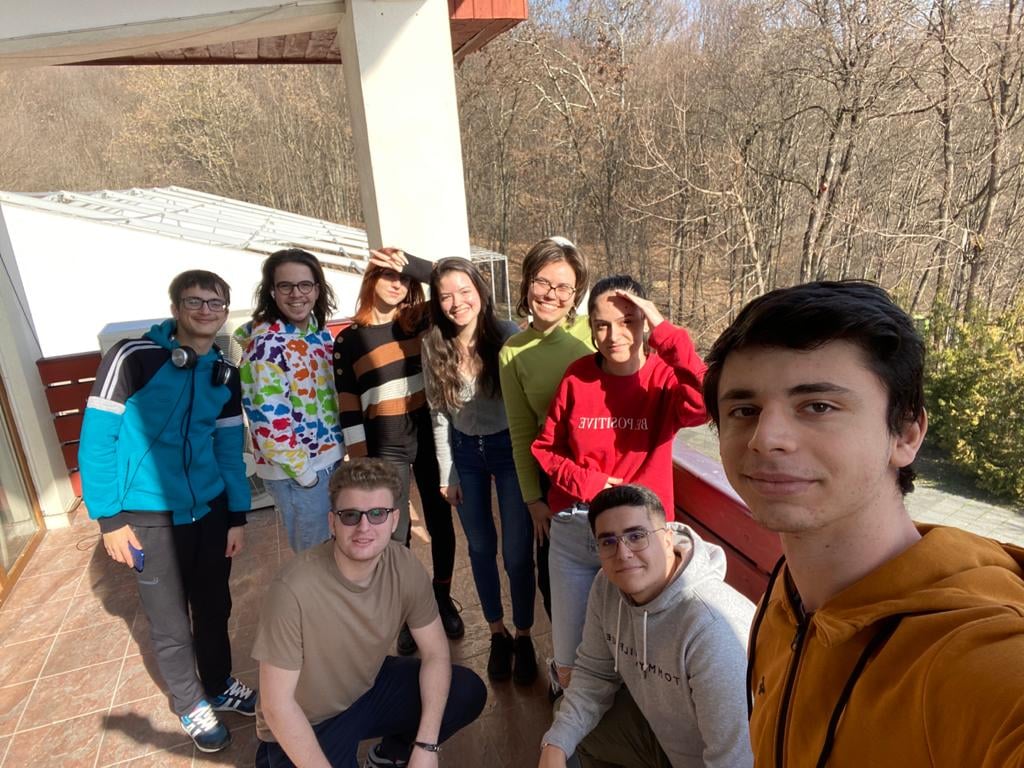
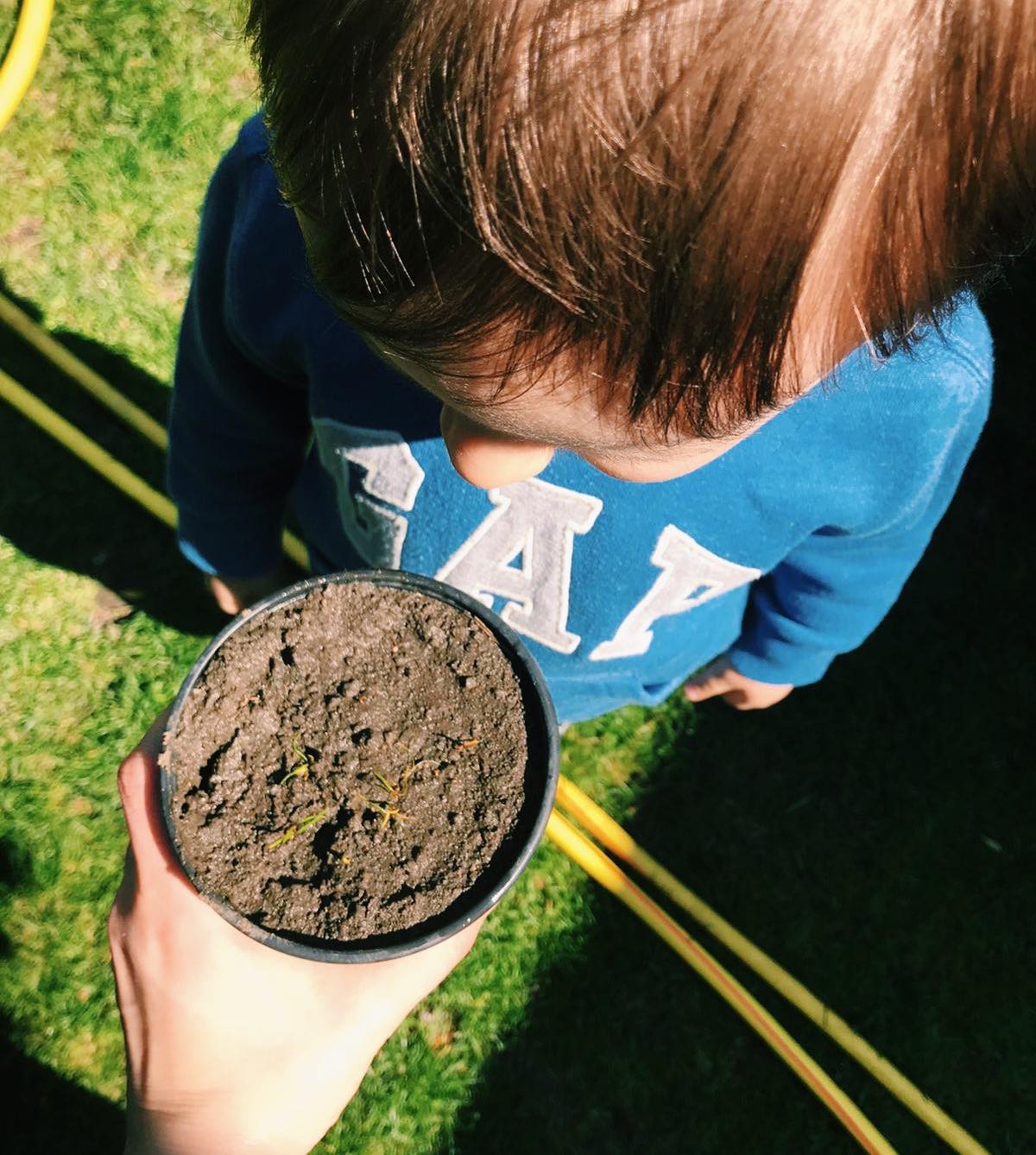
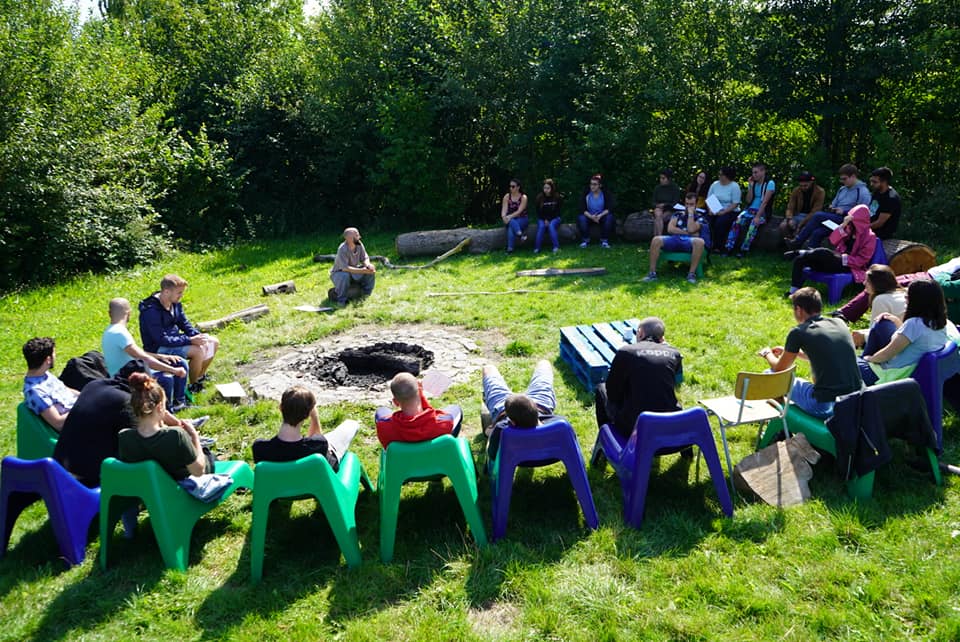
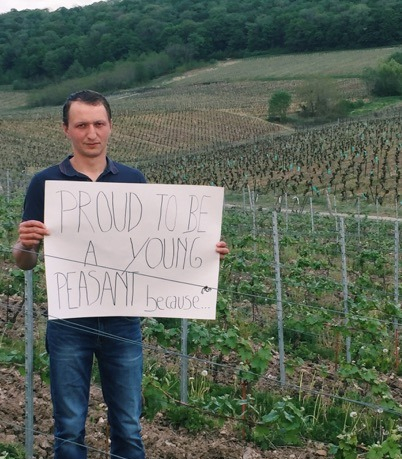
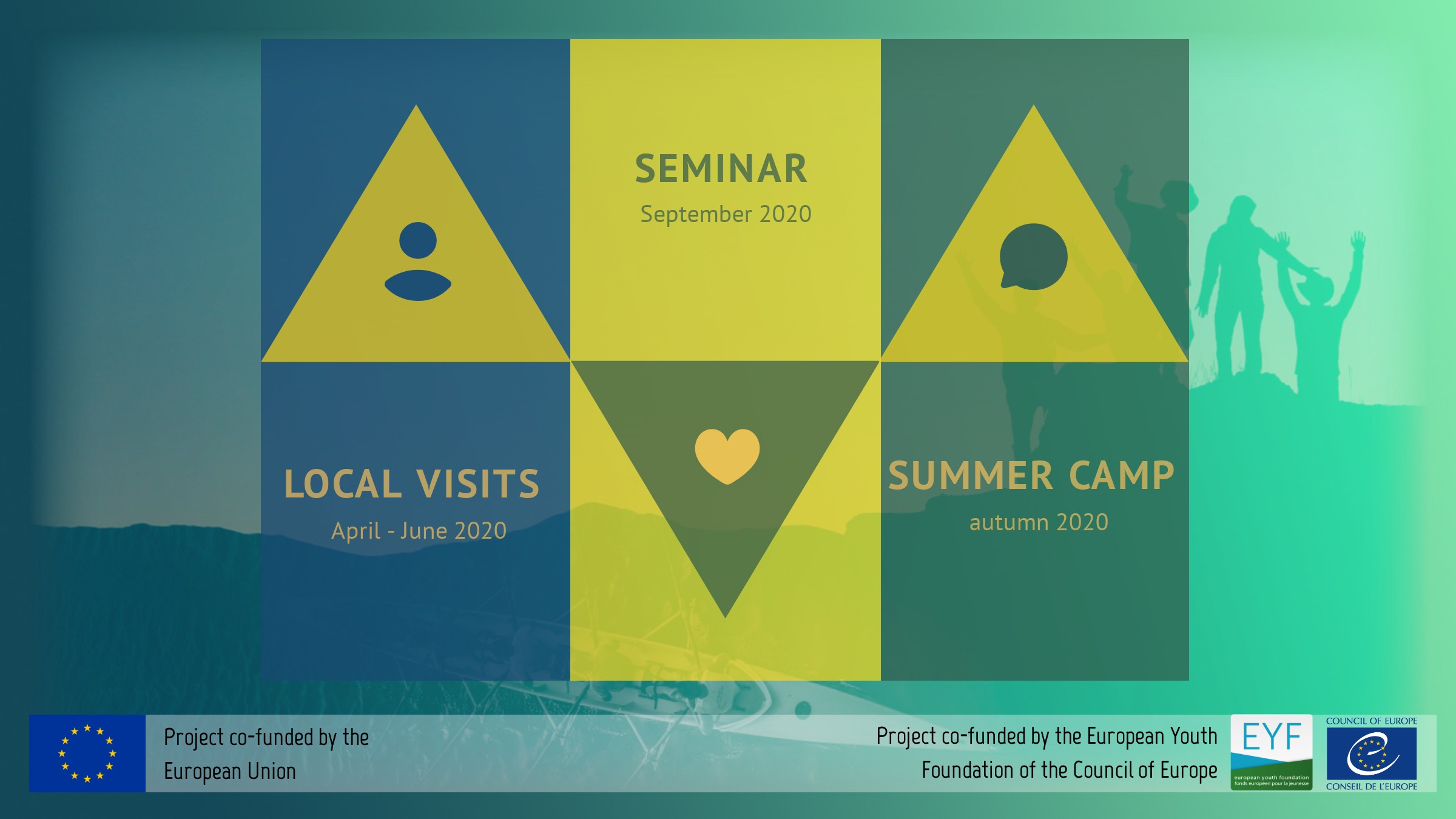
 Between
Between 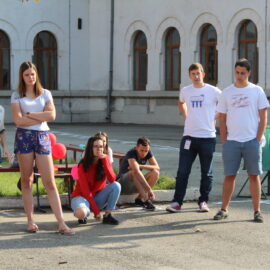
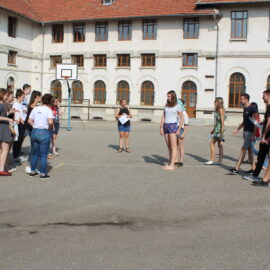
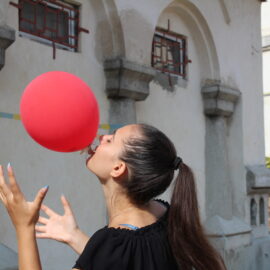
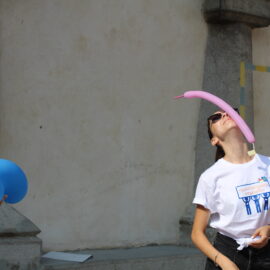
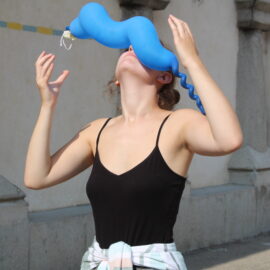
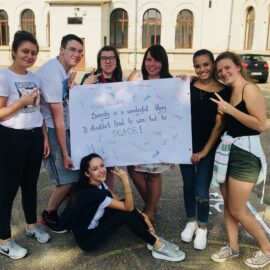
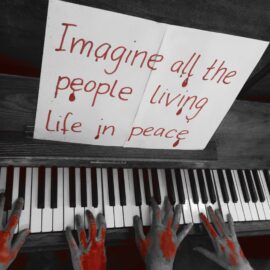
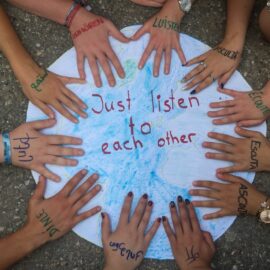
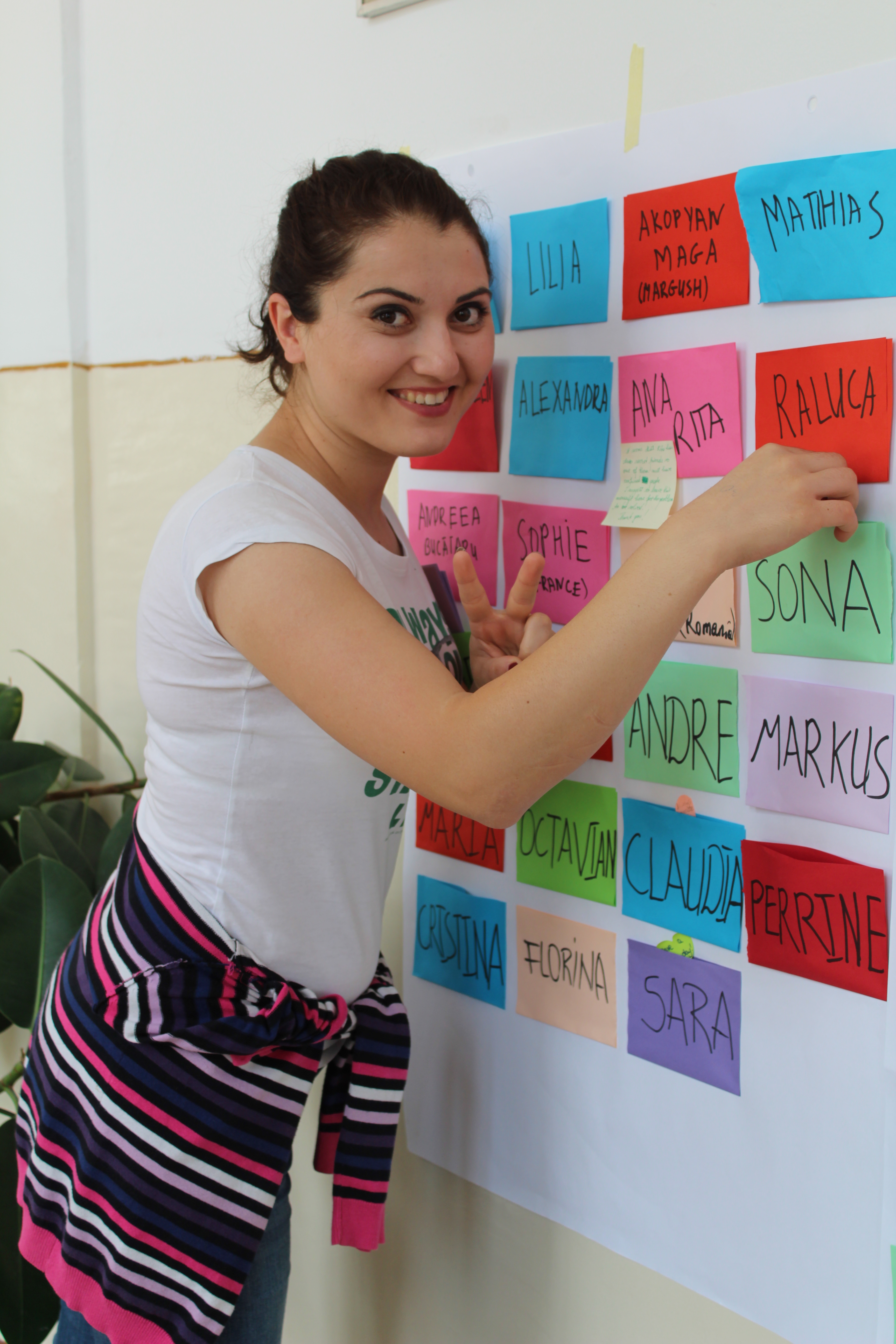
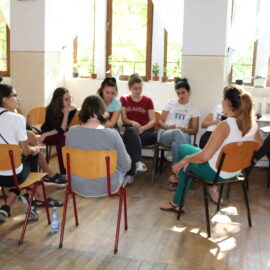
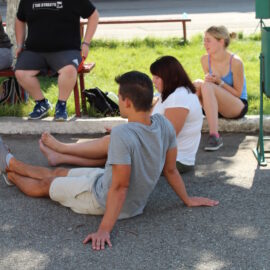
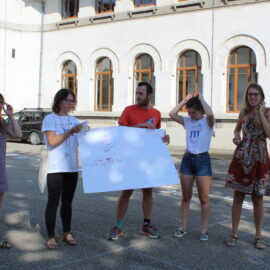
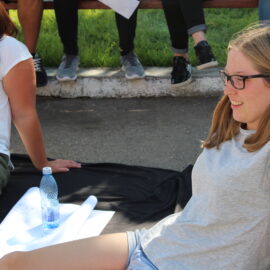
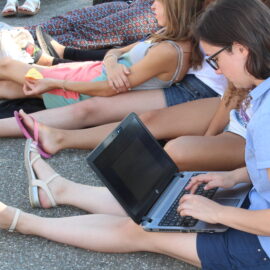
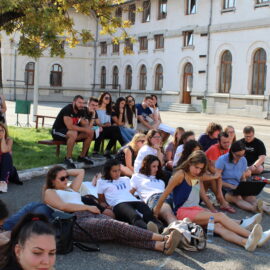
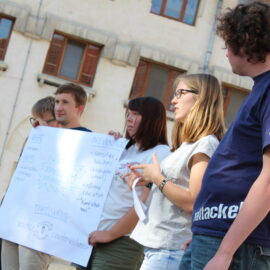
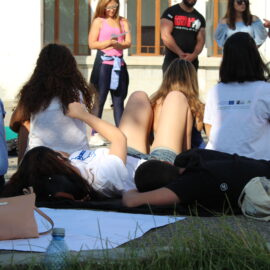
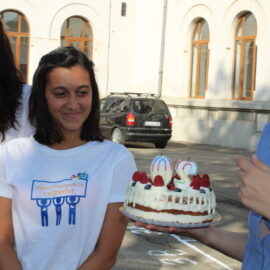
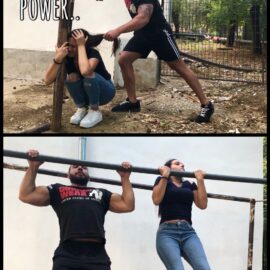
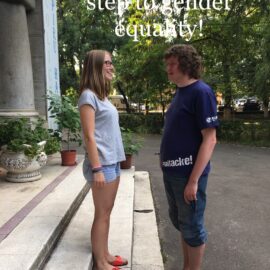
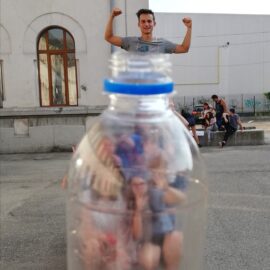
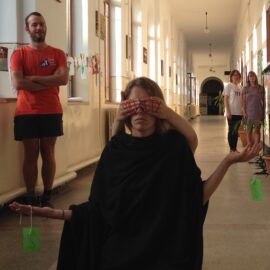
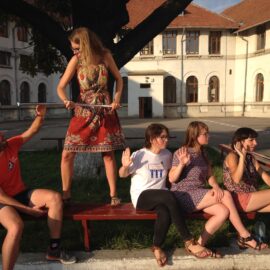
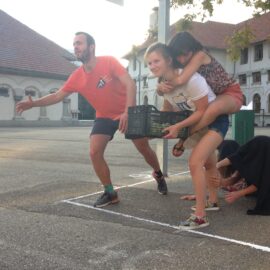

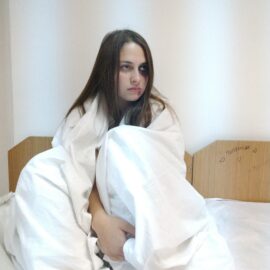
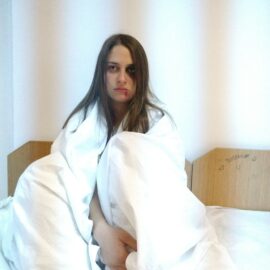
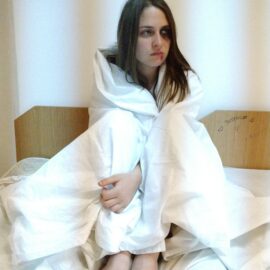

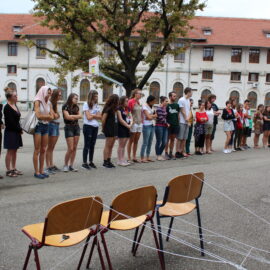
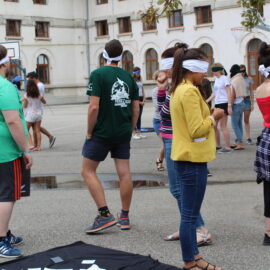
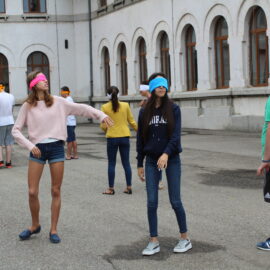
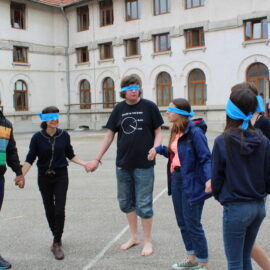
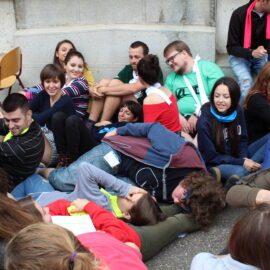
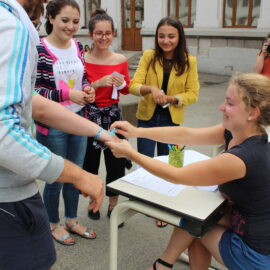
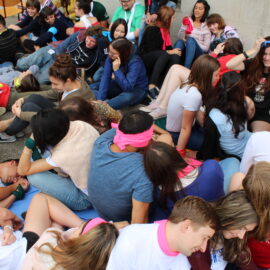
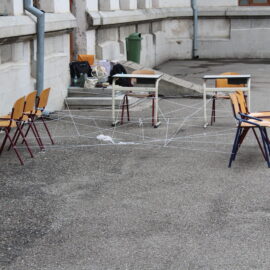
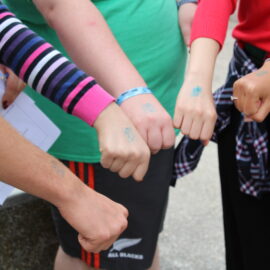
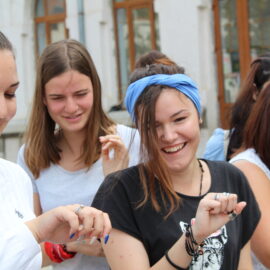
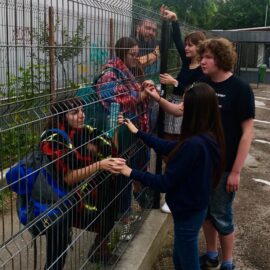
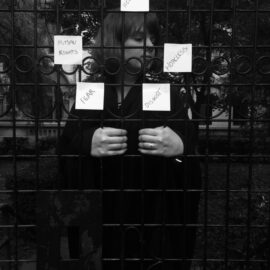
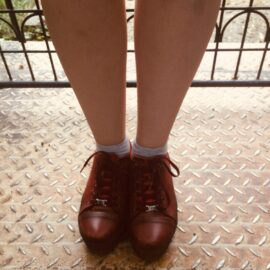
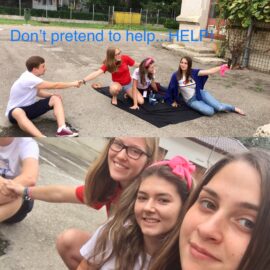
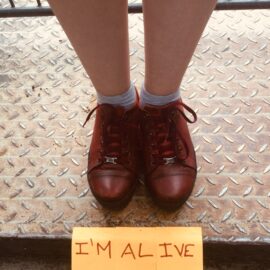
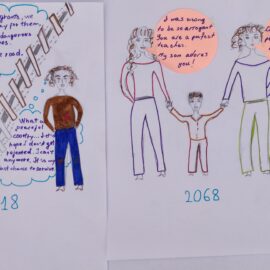
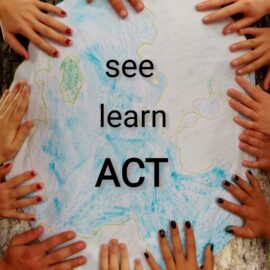
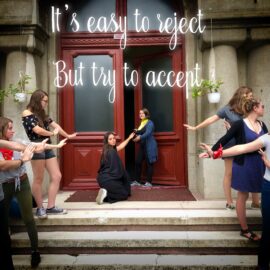
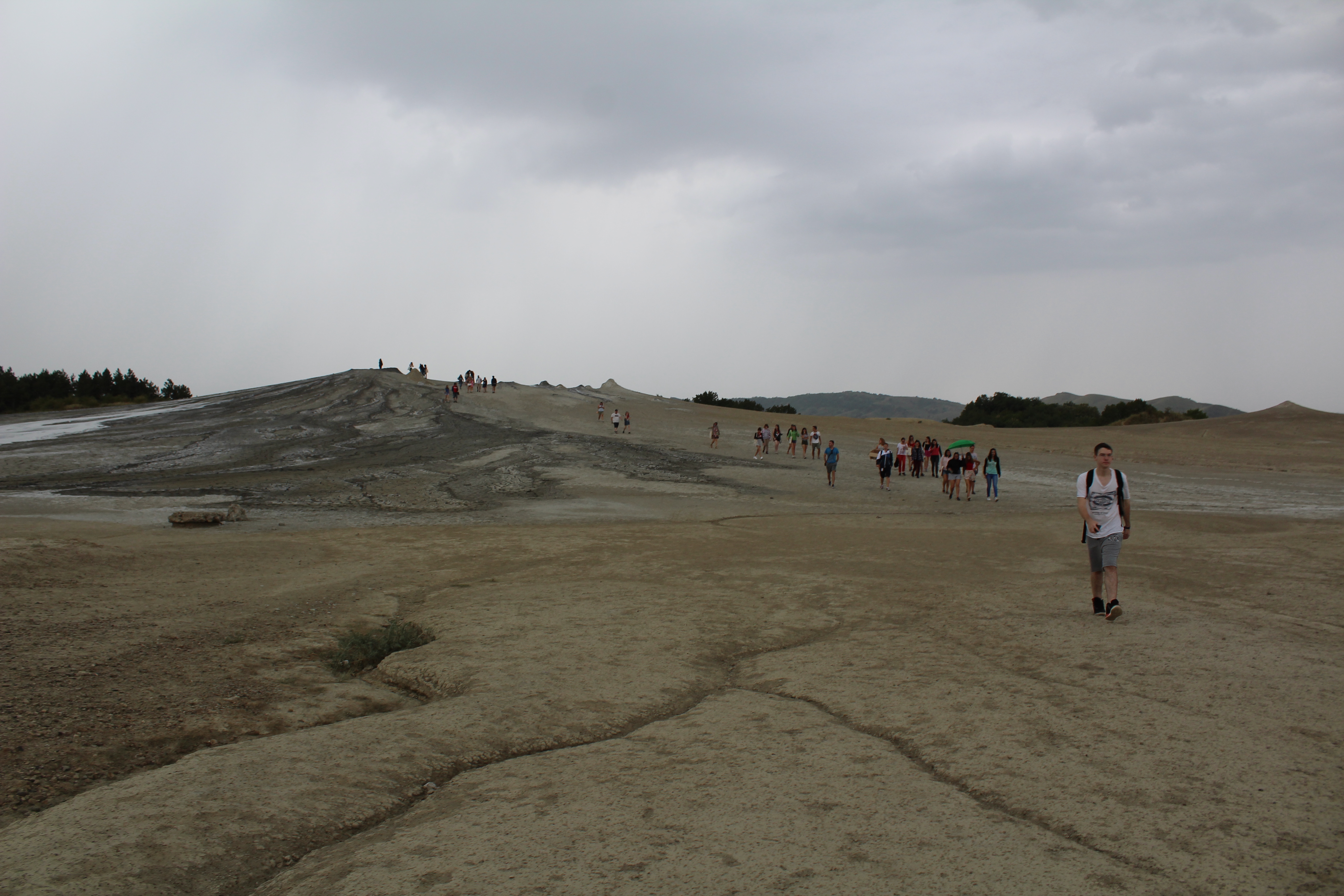 The rain tried to be the star of the second day but we managed to keep the focus on
The rain tried to be the star of the second day but we managed to keep the focus on 